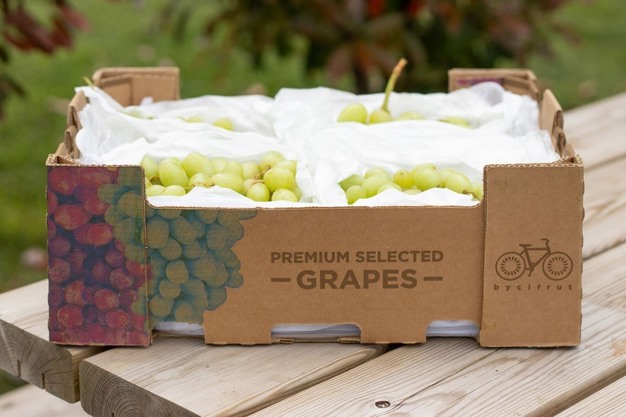Grapes and kiwis, two of Chile's key exports, face different challenges. On one side, kiwis are reaching historic high prices; on the other, the grape industry is pressed to develop new varieties to meet global market demands.
In this context, Bycifrut emphasizes the importance of diversifying markets, said Alejandro Riquelme, the company's representative, which focuses on exporting grapes and kiwis. Staying active in different regions—Europe, Asia, the United States, Latin America, and the Middle East—is crucial in the fruit export sector to spread risk, he explained. With numerous factors at play, such as production levels in other countries, shipping costs, tariffs, and quarantine rules, relying solely on one market is unsustainable. Riquelme emphasized the importance of establishing strong relationships with clients, who should become strategic partners rather than simple middlemen, covering the entire supply chain from producer to marketer.
 © Bycifrut
© Bycifrut
Regarding grapes, Bycifrut works with traditional varieties such as Crimson, Red Globe, Black Seedless, and Thompson, but is also exploring new licenses to access more competitive varieties. "The options under study to adapt better to consumer preferences and transit times to strategic markets include breeding programs such as Bloomfresh, Sun World, and Arra," he said.
 © Bycifrut
© Bycifrut
The situation is different for kiwi. The pandemic increased global demand, likely due to its high vitamin C content, which led to historically high prices. "However, the increase in value has also fueled internal competition among Chilean producers, who tend to export everything they harvest, even fruit that doesn't meet required standards. Exporting fruit that doesn't meet standards hurts us. We need to focus on maintaining quality standards to sustain prices and compete with players like Zespri," Riquelme stated.
 © Bycifrut
© Bycifrut
"Bycifrut expects to export around 750,000 boxes of grapes and kiwis this season, prioritizing the producer's reputation over volumes," he said. For Riquelme, the key is to establish strong commercial relationships and provide fruit that meets the requirements of each destination. The company's strategy is to collaborate with strategic partners in key markets, including Europe, Asia, the U.S., Latin America, and the Middle East, with a focus on fostering long-term relationships rather than relying solely on a single market.
 © Bycifrut
© Bycifrut
Looking ahead, the sector has two main priorities: choosing the most suitable varieties for each market and setting a quality standard that positions Chile as a strong competitor against other origins. "Each variety has its own market, and we must focus on that," Riquelme concluded, emphasizing that business sustainability depends more on consistency than on volume.
 For more information:
For more information:
Alejandro Riquelme
Bycifrut
Chile
Tel: +56 9 9434 8343
Email: [email protected]
www.bycifrut.com
